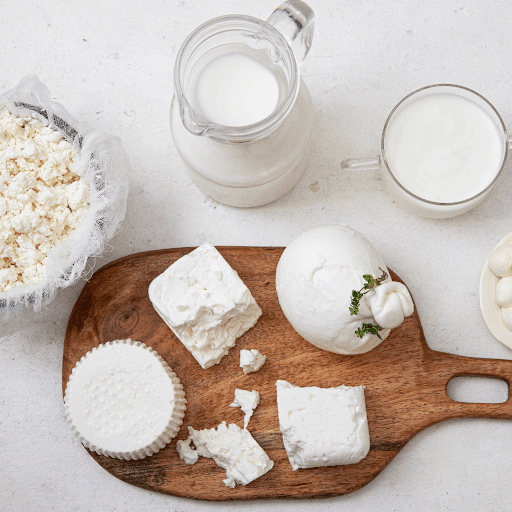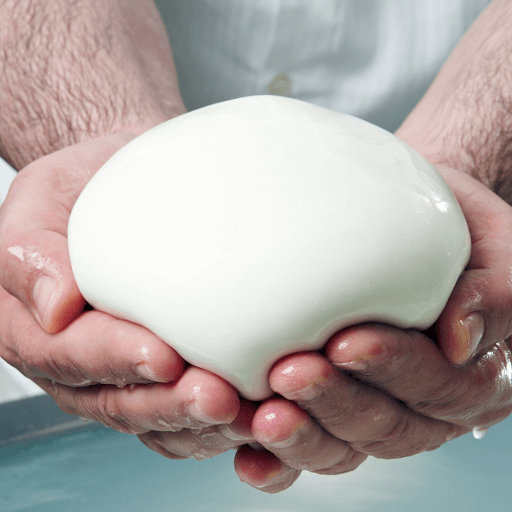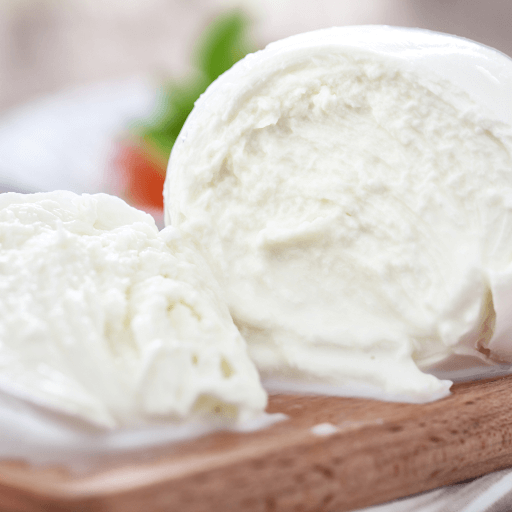I always keep mozzarella cheese on hand because it’s one of those staples I can’t live without.
Whether I’m making a simple Caprese salad, adding some melty goodness to pizza, or tossing it into a pasta dish, mozzarella is my go-to cheese for so many recipes.
Its mild, creamy texture works with just about anything, and I love how versatile it is.
And, as much as I use it, I’ve also learned how important it is to store it properly and keep an eye on its freshness.
After all, nothing beats mozzarella when it’s at its best, and I’ve found that knowing how long it lasts can make a huge difference in maintaining that delicious flavor and texture.
Like many soft cheeses, mozzarella has a shorter shelf life compared to harder cheeses such as cheddar or Parmigiano Reggiano. Knowing how to properly store mozzarella, the best practices to extend its freshness, and the signs of spoilage can help you enjoy this delicious cheese to the fullest.
In this today’s post, we’ll cover the history of mozzarella, its nutritional value, how it compares to other cheeses, the proper storage methods, and how long it lasts in the fridge, both opened and unopened.
The History of Mozzarella
Mozzarella originated in Italy, specifically in the Campania region, where it was made using buffalo milk. The name “mozzarella” comes from the Italian verb “mozzare,” meaning to cut, which refers to how the fresh curds are cut and shaped into mozzarella balls.
The traditional version, known as Mozzarella di Bufala, is made from the milk of water buffaloes and is considered a delicacy with a distinctively rich and creamy flavor. Today, mozzarella is also made from cow’s milk and has become a staple in many Italian dishes and cuisines worldwide.
Types of Mozzarella
There are two main types of mozzarella: fresh mozzarella and low-moisture mozzarella.
- Fresh mozzarella cheese is known for its creamy texture and milky flavor. It’s typically stored in water and sold in mozzarella balls or blocks.
- Low-moisture mozzarella has been dried further to extend its shelf life. It’s commonly used for pizza because of its excellent melting qualities.
Nutritional Information of Mozzarella
Mozzarella is considered a healthy option among dairy products because of its relatively low-fat content and high protein. A typical serving of mozzarella contains about 85 calories, 6 grams of fat, and 6 grams of protein. It is also a good source of calcium and vitamin B12. However, it is still a high-moisture cheese, which means it can spoil faster if not properly stored.

How Mozzarella Compares to Other Cheeses
Mozzarella stands out among soft cheeses for its mild flavor and elastic texture when melted. Compared to blue cheese, which has a stronger taste, or cream cheese, which is softer and spreadable, mozzarella is more versatile in cooking. While aged hard cheeses like parmigiano reggiano can last for months, mozzarella’s shelf life is much shorter due to its high moisture content.
Where Mozzarella is Made and Popular
While mozzarella originated in Italy, it is now produced around the world. The traditional mozzarella di bufala is still highly sought after, especially in gourmet markets and high-end restaurants.
In grocery stores, you’ll find cow’s milk mozzarella, which is more affordable and widely used in dishes like pizza and lasagna. It’s popular in many regions, including the United States, where it is the cheese of choice for many cheese lovers.
Common Uses for Mozzarella
Mozzarella’s mild flavor and creamy texture make it a favorite in a variety of dishes. Some of the most common uses for mozzarella include:
- Caprese salad: Fresh mozzarella paired with tomatoes, basil, and olive oil.
- Pizza: The go-to cheese for its ability to melt and stretch perfectly.
- Lasagna and other Italian baked dishes: Adds creaminess and texture.
- Sandwiches and paninis: A mild yet flavorful addition.
How to Store Mozzarella for Best Results
Proper storage of mozzarella is crucial to maintaining its best quality and extending its shelf life. Here are the best practices for storing both fresh mozzarella and low-moisture mozzarella.
Storing Fresh Mozzarella
- Original packaging: If you’ve bought unopened mozzarella cheese in its vacuum-sealed package, keep it in the fridge until you’re ready to use it.
- After opening: Once opened, transfer the cheese to an airtight container or cover it in plastic wrap to keep it fresh. It can be stored in its own liquid (if packed in water) or submerged in cold water in a container for up to 5 days for best results.
- Freezing: Fresh mozzarella can be frozen, but it will lose some of its creamy texture. For long-term storage, wrap the cheese tightly in plastic freezer wrap or use a Ziploc bag.

Storing Low-Moisture Mozzarella
Low-moisture mozzarella, such as block mozzarella, has a longer shelf life. It can last in the fridge for up to 3-4 weeks if unopened and for about 2 weeks once opened. Wrap it tightly in parchment paper and store it in an airtight container to prevent mold growth.
How Long Does Mozzarella Last?
Unopened Mozzarella
- Fresh mozzarella: An unopened package of fresh mozzarella will typically last up to a week past its expiration date if stored correctly in the fridge.
- Low-moisture mozzarella: This type of mozzarella can last for several weeks in the fridge, depending on the packaging and storage conditions.
Opened Mozzarella
- Fresh mozzarella: Once opened, fresh mozzarella will only last 3-5 days in the fridge. After that, it may begin to show signs of spoilage like a sour smell, slimy texture, or mold growth.
- Low-moisture mozzarella: After opening, low-moisture mozzarella can last up to two weeks if stored properly.
Signs of Mozzarella Spoilage
It’s important to check mozzarella for signs of spoilage to avoid foodborne illnesses like Listeria monocytogenes. Here are the most common signs:
- Sour smell: Mozzarella should have a mild, pleasant smell. If it smells sour or off, it’s a sign of spoilage.
- Slimy texture: Fresh mozzarella that’s gone bad may become slimy or sticky to the touch.
- Mold growth: Any visible mold on fresh mozzarella is a clear indicator that it should be discarded.
- Discoloration: White mozzarella that develops black mold or blue spots is no longer safe to eat.

Substitutions for Mozzarella
If you find yourself out of mozzarella or need a different option for a recipe, here are some good substitutes:
- Cream cheese: Can be used in certain dishes for a milder, spreadable option.
- Cottage cheese: Another soft, mild cheese, often used in lasagna.
- Cheddar cheese: Offers a sharper flavor and works well in baked dishes.
- Parmigiano Reggiano: A harder, more aged cheese that adds depth to dishes like pasta and pizza.
Food Safety and Best Practices
To minimize the risk of bacterial growth and foodborne illnesses, it’s essential to follow general guidelines for proper storage of mozzarella cheese:
- Keep mozzarella refrigerated: Always store mozzarella in the fridge and never leave it out at room temperature for more than 2 hours.
- Use airtight containers: Store mozzarella in vacuum-sealed containers or wrapped tightly in plastic wrap or parchment paper.
- Check the expiration date: Use mozzarella before the expiration date for the best quality and to reduce the risk of spoilage.
Whether you’re enjoying mozzarella in a Caprese salad or melted on a pizza, it’s crucial to store it properly to maximize its shelf life. While fresh mozzarella cheese has a shorter shelf life, low-moisture mozzarella lasts longer and can be stored for an extended period.
Always check for signs of spoilage and follow the best storage practices to keep your mozzarella fresh and delicious! If you’ve got any questions, feel free to reach out in the comment section and I’ll get back to you!











One Response
Hi, Can you dry fresh mozzarella with paper towels and then wrap it tightly with plastic wrap, Would that extend the life even more. Tanks.